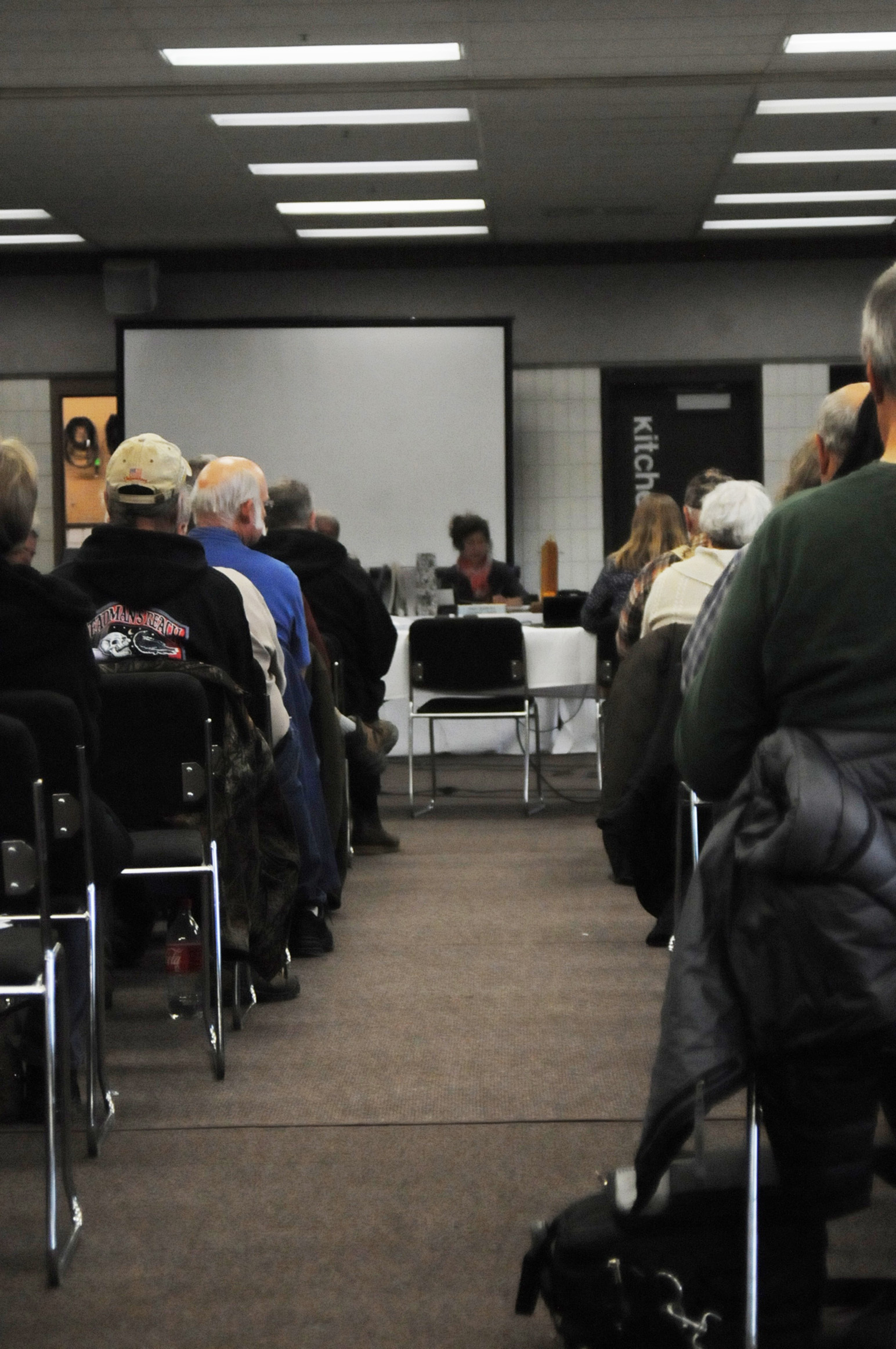Add to the Legislature’s agenda this session a request for reconsideration of the state’s fish habitat permitting process.
The state Board of Fisheries, the body that sets regulations on state-overseen fisheries, voted to send a letter to the Legislature at its Kodiak meeting, held Jan. 10–Jan. 13 recommending the state review Title 16 of the Alaska Statute, which addresses how the commissioner of the Alaska Department of Fish and Game should issue permits in streams determined to be fish habitat.
Any activity that may use, divert, obstruct or change the natural flow of a body of water determined to be fish habitat requires a permit, granted by the commissioner of Fish and Game. The current statute says the commissioner shall grant a permit unless an activity is deemed “insufficient for the proper protection of fish and game.”
The request was born out of a non-regulatory proposal submitted to the board for its 2016/2017 cycle by a group of 13 citizens of various user groups in fisheries. The proposal asked broadly that the Board of Fisheries recommend the state review the policies. Specifically, the requesters wanted the Legislature to recommend criteria to determine what “the proper protection of fish and game” means. Several of the authors and supporters, commenting at a public Board of Fisheries worksession held in Soldotna in October 2016, asked the board to recommend a change that would require the commissioner of Fish and Game to consider a stream anadromous until proven otherwise if it is not included in the Anadromous Waters Catalog.
The letter, sent to Senate President Pete Kelly and Speaker of the House Bryce Edgmon, made two recommendations for revision — improving public notification and opportunities for public comment on fish habitat permit and developing enforceable standards for what constitutes “the proper protection of fish and game.”
“Additional guidance is warranted for the protection of fish, to set clear expectation for permit applicants and to reduce uncertainty in predevelopment planning costs,” the letter states.
For public notification, the board noted that there was significant public concern that local residents weren’t always aware when the state was considering issuing a fish habitat permit nearby. The average time between when an application is received and the permit is granted is four days, according to the letter.
“There are undoubtedly nuances to this efficient permitting that must be considered, and improved notification to the public for certain activities is in the public’s best interest,” the letters states. “Additionally, tracking permitted activities by geo-referenced location would facilitated better consideration of cumulative impacts.”
Several of the members of the Board of Fisheries worked to develop a draft after a joint meeting of the board’s habitat and legislative committees the night before the board met in Homer for its Lower Cook Inlet meeting in November. The one element removed from the draft letter before approval was the presumption of anadromous waters.
Lindsey Bloom, a fisheries consultant with a background in commercial fishing in Southeast Alaska, submitted the proposal on behalf of the group of authors. She said the authors were fairly pleased with the outcome from the Board of Fisheries.
“I think we’re all really happy with the outcome,” she said.
One of the driving factors for the request was plans for megaprojects or mining development in salmon habitat like the now-mothballed Susitna-Watana Hydroelectric Project or the proposed Pebble Mine in the Bristol Bay region. One of the authors, Soldotna resident and Cook Inlet commercial fisher Willow King, said in a press release about the proposal that Title 16 should be updated to reflect growing development in Alaska.
“Alaskans never could have imagined megaprojects like Pebble Mine when they drafted salmon protections into Title 16 more than six decades ago,” King said. “We need to update this law to protect the salmon runs that are so culturally and economically important to our state. Alaskans, tribes and local governments also need a voice in permitting decisions on projects that significantly impact salmon runs.”
Reach Elizabeth Earl at elizabeth.earl@peninsulaclarion.com.

